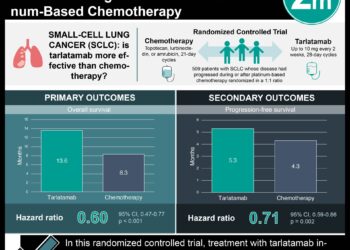[BMJ] Low glycemic index diet in pregnancy has positive effect on gestational weight gain and maternal glucose intolerance, but not on fetal weight
Image: CC/Ernest
Large for gestational age infants (macrosomia) pose problems for both the neonate and the mother. These infants are more likely to become obese and have cardiovascular problems later in life. Birth weights in infants of mothers with diabetes are increased up to 35%, and strong associations are known between maternal glucose concentrations and the incidence of macrosomia. There has never been a randomized controlled trial assessing a low glycemic diet on the effect of fetal macrosomia.
A new study, published in BMJ, studied the effect of a low glycemic index diet from early pregnancy in a group of women all in their second pregnancies who had previously delivered an infant weighing greater than 4000g. The randomized controlled trial was designed to seek out if a low glycemic index diet would reduce the recurrence of fetal macrosomia in second pregnancy (current recurrence rate of 30-50%). Primary outcome was difference in birth weight between the intervention and control groups. Secondary outcomes was difference in gestational weight gain and maternal glucose intolerance.
Key results: No difference was seen between the two groups in any measure of infant birth weight. In terms of secondary outcome, however, significantly less gestational weight gain occurred in women in the low glycemic index arm (12.2 v 13.7 kg; 95% confidence interval −2.4 to −0.2; P=0.01). The low glycemic index group also had a statistically significant lower rate of glucose intolerance at 28 weeks.
In sum: While the low glycemic index in diet did not reduce the risk of large for gestational age infants recurrence – there were two key maternal benefits: less gestational weight gain and less maternal glucose intolerance. Note that the study specifically excluded those with a previous history of gestational diabetes. As the patients were all at risk of having a large for gestational age infant, it is possible that the Hawthorne effect played a role in the motivation of women to control weight gain throughout pregnancy – as blinding the subjects is not possible. No harmful effects of the low glycemic index were seen.
Click to read the study in the British Medical Journal [BMJ]
© 2012 2minutemedicine.com. All rights reserved. No works may be republished or reproduced without the expressed written consent obtained directly from 2minutemedicine.com.




